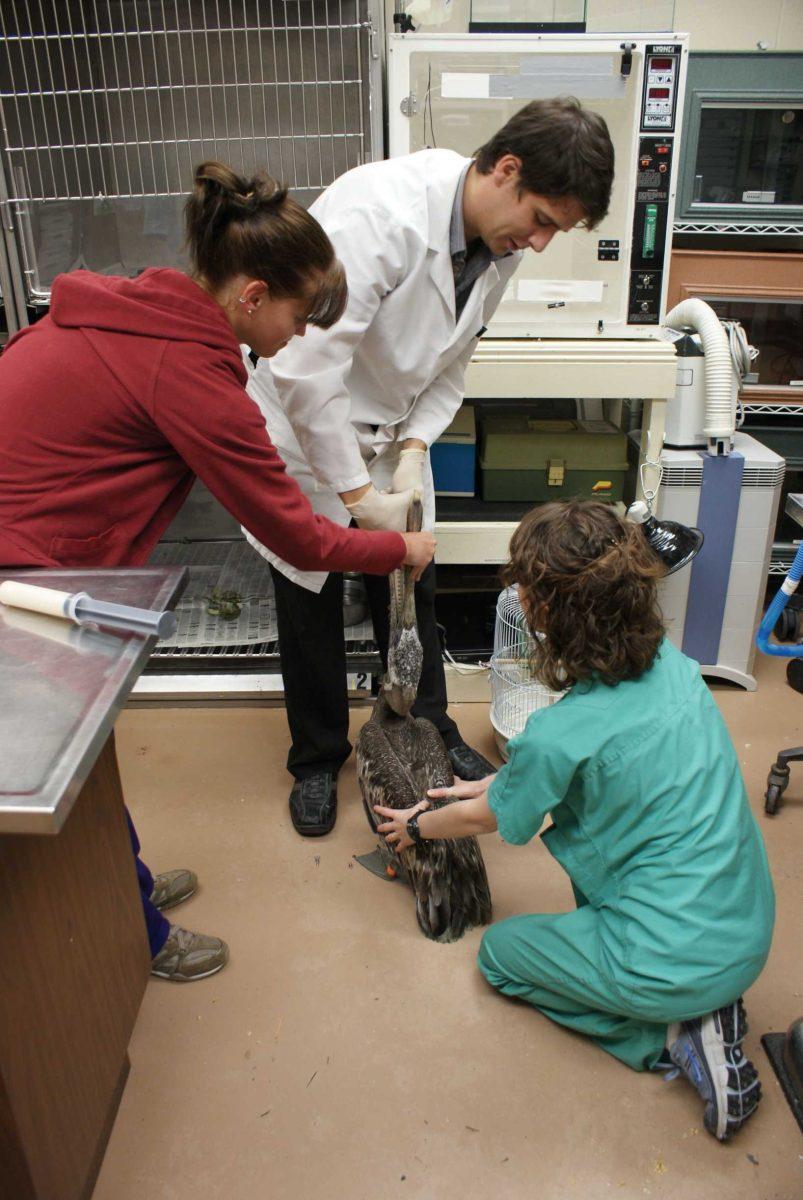The University’s Wildlife Hospital has been accepting animals that were injured in the Gulf of Mexico oil spill recovery.
The influx of injured wildlife was brought on by the increased number of oil spill responders working in areas that rarely see human contact. Most injuries at the hospital were caused by human activity in these areas because of oil spill cleanup, including less food availability for the animals because of oil build up, boating injuries, fractures, fishing hooks and stress, said Hugues Beaufrere, zoological medicine resident.
The Wildlife Hospital is accepting injured animals free of charge; however, the hospital depends on donations to cover the cost of surgery and care for the animals because BP isn’t covering any costs of non-oiled, injured birds, said Ginger Guttner, spokeswoman of the School of Veterinary Medicine.
Javier Navárez, assistant professor and zoological medicine director, said the hospital has around seven laughing gulls, four of which are waiting to be released by Wildlife and Fisheries. About a third of the birds have been released back into the wild since May.
In the last week of August, the Wildlife Hospital accepted its most recent bird, a brown pelican. Injuries to the pelican included a large punctured hole in the bird’s pouch attached to its beak.
The cause of the hole was unknown, but Beaufrere speculated it was some sort of trauma-related injury. The pelican underwent surgery less than a week later to patch up the injury on its pouch and is on the road to recovery.
In many cases, surgery is needed to repair injuries, but the hospital also runs tests and bandages wounds for the animals, said Robin Crider, fourth-year veterinary student.
As of Sept. 5, the hospital was caring for a royal tern with a broken wing, a snapping turtle with a hook in its stomach, several laughing gulls and the recent brown pelican, which was recovering from surgery.
The hospital received its first bird, a yellow-crowned night heron, May 1. Since then, Guttner said, the hospital had accepted 69
animals: 65 non-oiled, injured birds; two oiled, injured birds; a non-oiled, injured snapping turtle; and an oiled sea turtle. In August alone, the hospital admitted 15 birds, including eight laughing gulls and two brown pelicans.
Most of the birds the hospital receives are sent from Tri-State Bird Rescue and Research, a non-profit wildlife rehabilitation and rescue organization. Tri-State’s staff has been trained to respond to injured birds during oil spills and has been working on the Gulf Coast since late April, according to Tri-State’s website.
—-
Contact Kate Mabry at kmabry@lsureveille.com
Vet School: Injured birds recover at University
September 9, 2010





